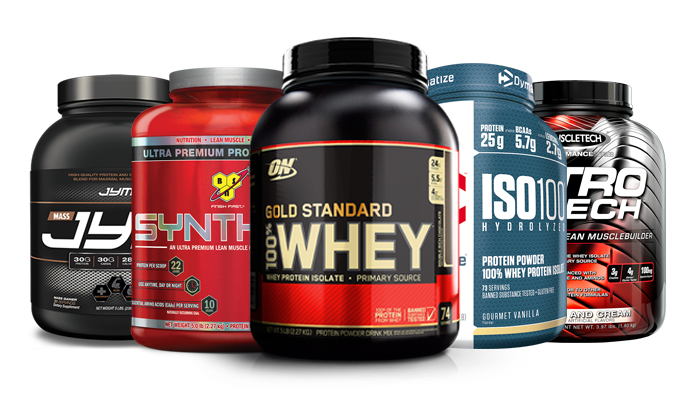Protein is everywhere you look these days, but not all protein can give you the same results. And depending on your choice of diet, some protein sources may not even be an option. For those going on the keto diet, it is important to find good sources of protein that don’t interfere with the diet’s primary function – getting into and maintaining ketosis.
This means starchy sources of protein such as peas, chickpea, and soy are not an option. So how can you meet your protein demands and without breaking any keto diet taboos? That answer lies in a great source of both fat and protein – whey.
Can You Have Whey Protein for Ketosis?
Whey is one of two proteins that make up milk, the other being casein. And while whey does come from milk, it is keto-friendly. But not all whey protein is the same, and some types of whey tend to be more keto-friendly than others. Unlike casein and lactose, whey is easy to digest for those with an intolerance to dairy products.
Whey protein comes in three types:
- Whey protein isolate powder
Whey protein isolate has the least amount of lactose, the highest concentration of bioactive compounds, 90 – 95% of protein, and has the lowest amount of carbs per serving. It is the purest of the supplemental forms of whey that is easy to digest and is readily absorbed by the body.
- Whey protein concentrate powder
While not the purest form of whey, it has only a moderate amount of lactose and carbs. It contains at least 35 – 80% by weight of protein per serving. So, for each serving, you can roughly estimate 25 grams of protein and 3 to 4 grams of carbohydrates.
- Whey protein powder
Of the three types, whey protein powder is the least processed. It also has the highest amount of lactose. This form of whey protein is often included in many food products.
While whey protein isolate is the best form of whey for those on the keto diet, whey protein powder can be helpful too. After all, to get that wonderful concentration of whey protein isolate, you have to process whey protein powder first.
What is in Your Whey Protein Powder?
Whey protein powder for ketosis has the most lactose of the major types of whey protein, but that is not all that it has. Whey protein has all nine essential amino acids: lysine, tryptophan, isoleucine, histidine, phenylalanine, threonine, methionine, leucine, and valine.
Valine, leucine, and isoleucine are BCAAs (branched-chain amino acids) which are helpful for muscle building and recovery. Food sources such as whey protein include these handy amino acids since our bodies are unable to synthesize them on their own.
On top of amino acids, whey protein includes amino acid precursors such as cysteine. This precursor is what helps our bodies produce glutathione, an antioxidant that prevents cellular damage among other things.
But amino acids and cysteine aren’t all whey protein powder has to offer. Whey also has many bioactive compounds such as:
- Lysozyme
A bacteria-killing enzyme that does so by destroying their cellular walls.
- Alpha-lactalbumin
A major milk protein that is beneficial for brain health, muscle health, gastrointestinal health, neurotransmitters, and more.
- Beta-lactoglobulin
Another type of milk protein that is beneficial in enhancing the body’s immune response and can potentially help those with allergies.
- Lactoperoxidase
An enzyme that functions as a natural antibacterial agent.
- Lactoferrin
It is a protein that helps regulate the delivery of iron into the body’s cells, bone marrow function, and the absorption of iron in the intestinal tract. It also helps the body fight off bacterial and some viral and fungal infections.
- Immunoglobins (IgG and IgA)
IgG and IgA are both necessary for a healthy immune response and assist in fighting off infection inside the body.
Is Whey Protein Easy to Digest?
Many milk products are hard to digest due to the lactose and casein content. And while whey is a milk product, whey protein is one of the easiest dairy products to digest. The main reason for this is because whey doesn’t have high lactose or casein content. These two compounds are the primary culprits for most dairy intolerances.
The best type of whey to use is whey protein isolate. This type has most of the lactose and casein filtered out. So, if you have lactose intolerance or any dairy intolerance, then this form of whey is ideal for you.
Whey Protein: Building and Repairing Your Muscles
Whey is good for building muscle and maintaining lean body mass. Which is great for those who are looking to burn fat and gain muscle while on the keto diet. The high amino acid content and easy digestibility make whey an ideal pre-workout food.
How whey helps your body build and recover muscle is by promoting a positive net balance of protein in your muscle tissue. When you have a positive net balance of protein in your muscles your body builds muscles. When your body doesn’t have enough protein, it will breakdown muscle tissue and reduce muscle growth overall.
Health Benefits of Whey Protein
Muscle growth and recovery isn’t the only health benefit of whey protein. There are a few other health benefits that come from adding whey into your diet. Some of those health benefits are:
- It can help lower blood pressure and improve healthy HDL.
- It can potentially help those with non-alcoholic fatty liver disease.
- Whey’s lactoferrin content helps in preventing colon cancer.
- It can improve gastrointestinal conditions of Crohn’s disease and leaky gut syndrome.
- It can help reduce cognitive decline in aging adults.
- It improves insulin sensitivity.
- It increases fat burning for both the fat eaten and stored body fat.
And while these are wonderful benefits, some people may want to avoid using whey protein for their keto diet.
Side Effects of Whey Protein
While whey is a great way to get fat and protein, it isn’t perfect. People with dairy allergies, alpha-lactalbumin and/or beta-lactoglobulin allergies, should avoid whey products along with those who have serious kidney and liver health conditions.
If you do have lactose intolerance, you may still have some sensitivities to whey. Some common symptoms include bloating, flatulence, stomach pain, and bowel movement trouble.
Final Thoughts
Whey is among the top seven types of protein powders that can help you achieve the best results while maintaining ketosis. And whether you use the purest form of whey protein or a standard whey protein powder, your body will still go into ketosis either way. With all of this in mind, we hope you find this information helpful on your keto journey.
I am an Ambitious girl with a special interest in writing and sharing my knowledge. I love to hangout with nature and learn from it. My words will display the power of nature to the best as I love to write about the environment.





